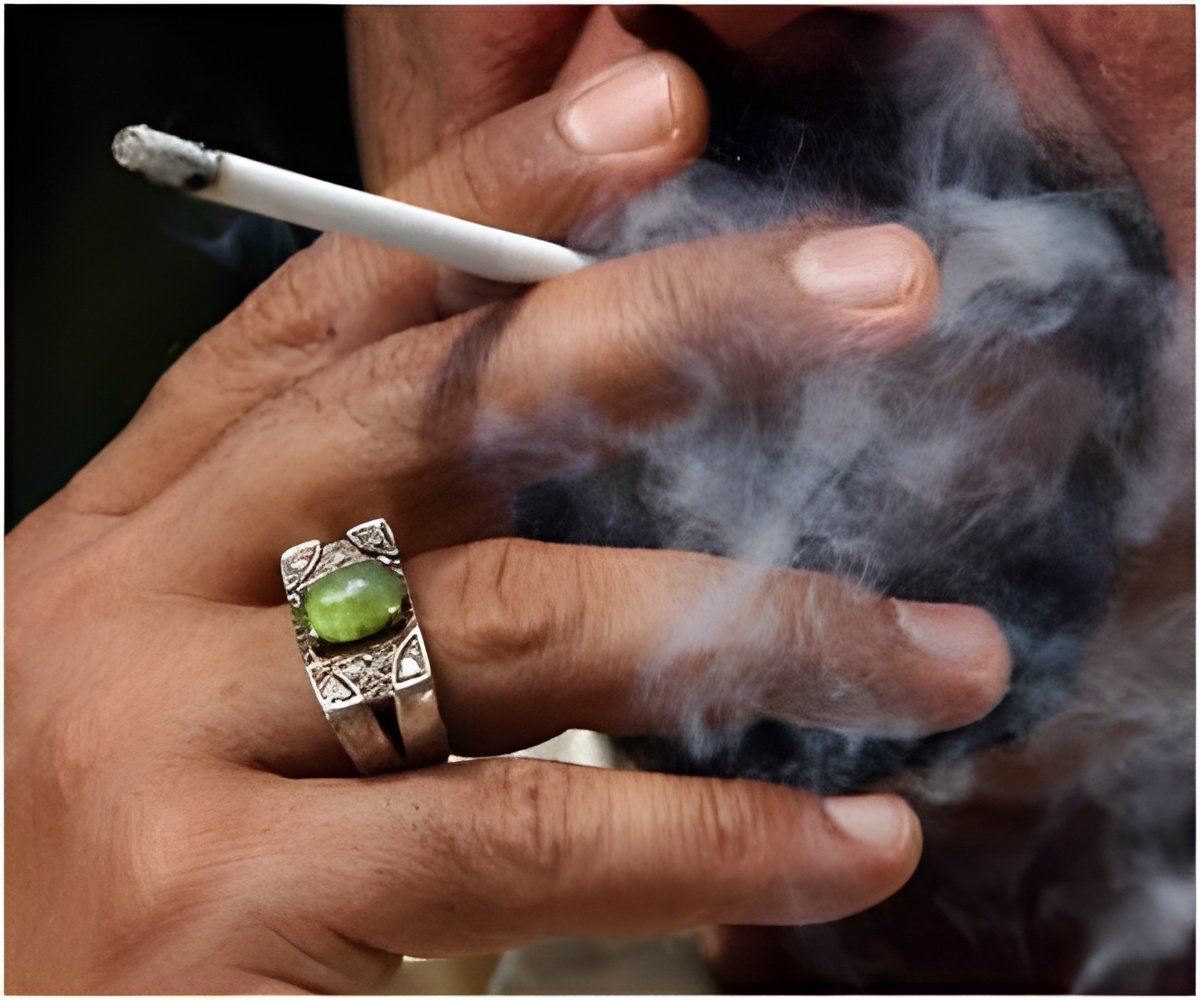Military tobacco control policy affects long-term survival of military personnel, and is an important contributor to population-wide mortality.

‘Cigarette smoking increased by almost 40% during compulsory military service in the Israel Defense Forces (IDF).’





The researchers, from Tel Aviv University, the University of Haifa,
and the Hebrew University of Jerusalem, in cooperation with the IDF
Medical Corps, say the increased smoking prevalence among military
personnel, and the increase during military service, should act as a
wake-up call to governments and health systems in countries lacking
strong military tobacco control policies.The research was conducted by Dr. Laura Rosen of the School of Public Health at Tel Aviv University; Dr. Hagai Levine from the Hebrew University-Hadassah Braun School of Public and Community Medicine; Dr. Salman Zarka from the University of Haifa; and Vladi Rozhavski, Tamar Sela, Dr. Yael Bar-Ze'ev, and Dr. Vered Molina-Hazan from the IDF Medical Corps. It was funded by the Israel National Institute for Health Policy Research.
Former smoking and combat profiles are risk factors for smoking initiation
Among nonsmokers at recruitment, 18% initiated smoking during service. Former smokers were at greatest risk: 56% began smoking during service. Men and women with combat profiles were also at an increased risk, after adjusting for personal, family, and military factors.
Prevalence of smoking was greater among males at discharge (40.3%) than among females (32.4%), but the increase during service was similar. On the other hand, 12% of smokers at recruitment quit smoking during service. There were no clear trends over the decades regarding smoking prevalence at recruitment and discharge. There was a slight increase in smoking cessation during service among males.
Advertisement
Nearly a fifth of nonsmoking new recruits initiated smoking during service, and over half of former smokers relapsed to smoking. Because 50%- 65% of smokers die prematurely from smoking-related causes, the ongoing and future damage is enormous. The large increase in smoking during service, combined with high subsequent mortality of smokers, suggests that military tobacco control policy affects long-term survival of military personnel, and is an important contributor to population-wide mortality in countries such as Israel where a large percentage of individuals serve.
Advertisement
Dr. Hagai Levine, Head of the Environmental Health Track at the Hebrew University-Hadassah Braun School of Public Health and Community Medicine, said: "The increase we found in the rate of smoking during compulsory military service is of great concern in light of the serious consequences for public health. We must concentrate our efforts in the war against smoking in order to protect the health of young men and women, and to coordinate civilian and military efforts in order to fight smoking throughout the life course. I hope that the IDF will adopt similar measures to those implemented successfully in other armies."
The investigators recommend the creation of a central tobacco control body with comprehensive tobacco control policy, similar to programs in the U.S. military. The following steps are recommended: enforcement of smoking bans in public areas; prevention of supply of free or reduced-cost cigarettes to soldiers; prevention and treatment of tobacco dependence tailored for the military environment; monitoring of personal and army-wide smoking status.
The investigators also recommend that commanders disseminate health messages and no-smoking messages through personal example, particularly in combat units and during combat operations. A special program should target former smokers, given the high chance of returning to smoking. Special attention should be paid to those who score higher in their recruitment profiles, who often end up serving in combat units where the smoking rate is higher.
The dramatic increase in smoking during military service presents a window of opportunity for changes in health behaviors, and suggests a need for a multi-year war on tobacco among soldiers, in order to protect their health and military fitness. The study also showed that smoking is already problem prior to recruitment, which adds urgency to the call for national efforts to prevent smoking initiation, which could be coordinated with the Ministries of Education and Defense.
Source-Eurekalert















